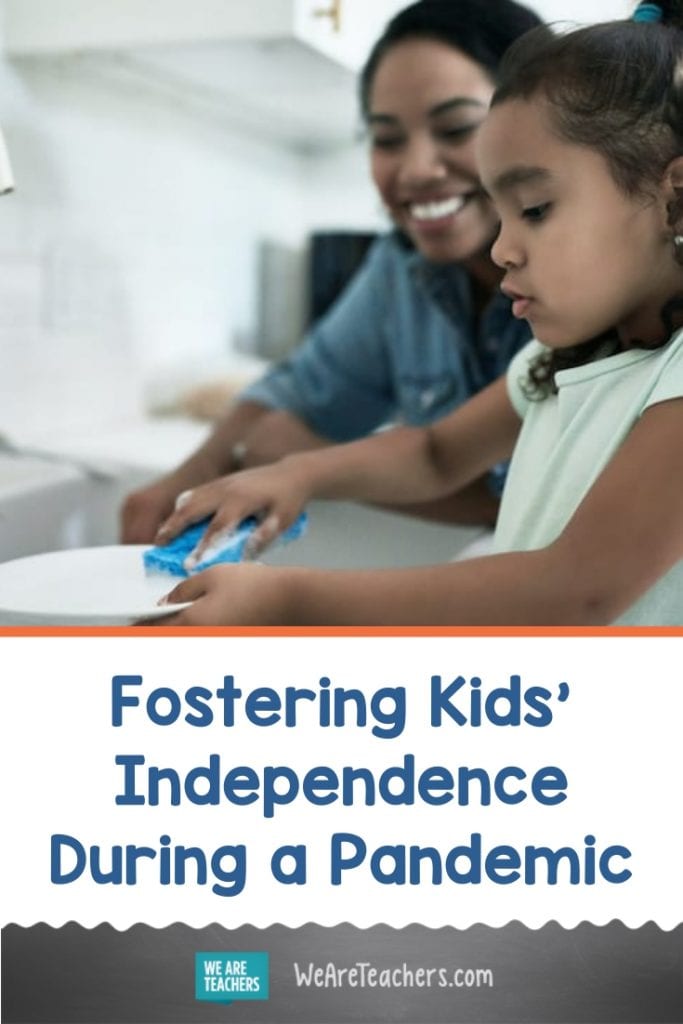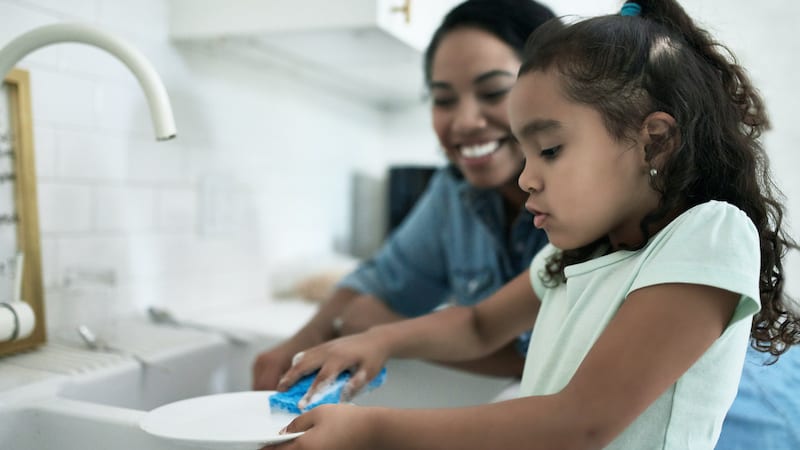Teacher moms are always busy, but this spring I held more roles than ever. Virtual second grade teacher, calendar keeper, food preparer, recess monitor, cleaner, and technology coordinator. Often, making sure that my own children got the most from their online education fell to the wayside. I realized I needed to foster independence in both my own children and my students…but how do I do that given the circumstances?
Provide opportunities for independence, but make sure kids know the expectations
So how do busy parents like me help children learn accountability and foster independence?
Emily W. King, Ph.D., Licensed Psychologist says, “I have recommended that families incorporate more independent learning opportunities into their days, as we do have more time at home to teach chores and household responsibilities.”
This doesn’t mean taking a hands-off approach. When children aren’t sure what to do, they can feel stuck.
“If we fail to teach children HOW to do these tasks, we can expect them to be frustrated or resistant when it comes time to do the task,” she says. “Some children with executive functioning weaknesses struggle even more with planning, initiating, and implementing tasks so it’s best to perform tasks side-by-side for a while until kids are proficient at the task. Children will learn best with expectations plus structured teaching.”
Use the right words
The words we use can also make or break the development of kids’ independence. Try phrases that encourage growth mindset and focus on effort, not outcome. This list of things to say instead of “good job” is a good place to start.
Look for authentic and meaningful opportunities for learning
If my children aren’t interested in a website, they click to a new screen within minutes. The hard reality is that for many kids, the way virtual learning was structured didn’t work—aynchronous lessons, having to log minutes against a task.
There needs to be more project-based, real world, and authentic assignments. Students have faced a world crisis and want to know how their assignments apply to the world around them. If they wonder why they need to study ancient Greece or why the break apart addition method matters, we need to be able to answer.
Encourage continued learning over the summer
Continue learning over the summer with workbooks, learning websites, and creative hands-on lessons. Remember to celebrate accomplishments from work well done to help children find the value in it.
Get creative with celebrations for learning at home. Have a dance party together. Take a nature walk when it’s darker than usual. Spot the stars together. The connection you build with your children may be the reward they’re hoping for and can be a powerful incentive to motivate their learning.
Not sure where to start? Visit our resources for Learning at Home where you’ll find dozens of articles and hundreds of activities, books, and more to facilitate learning this summer.
Also, what are your tips to foster independence? Share in the comments below.

